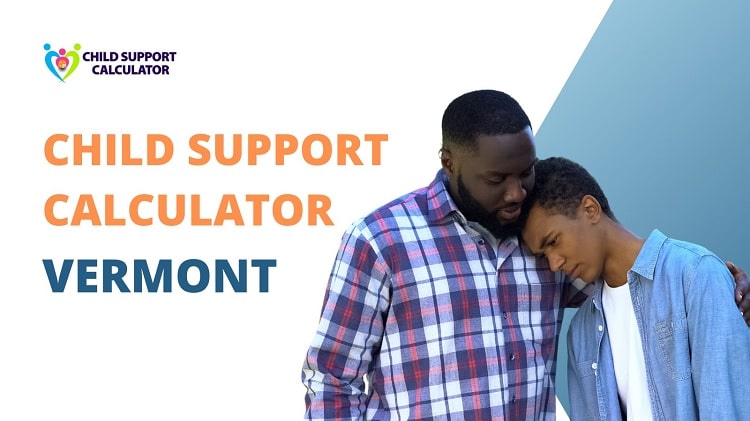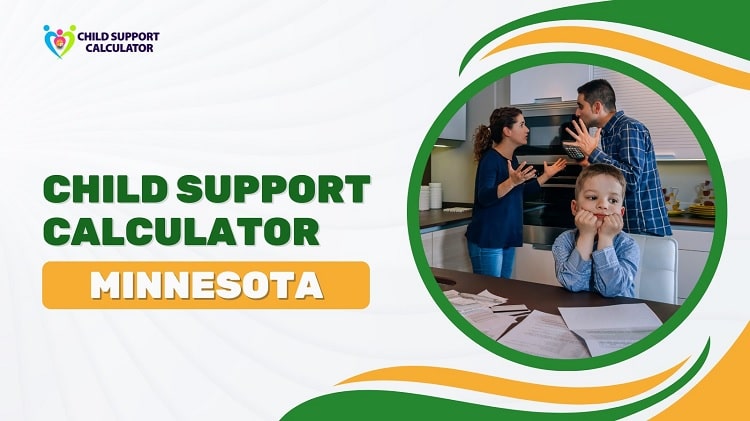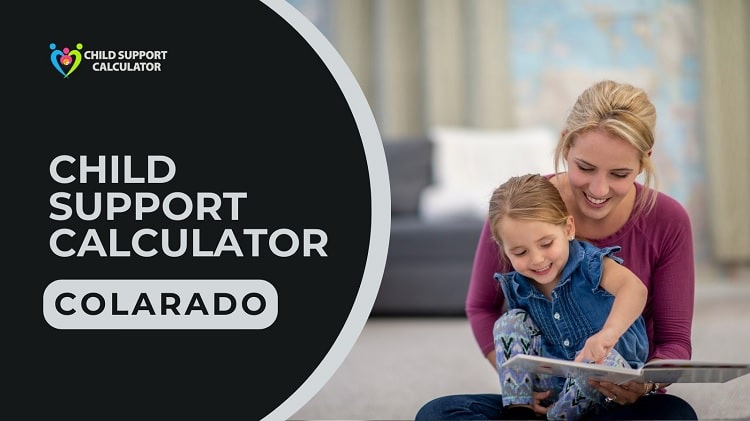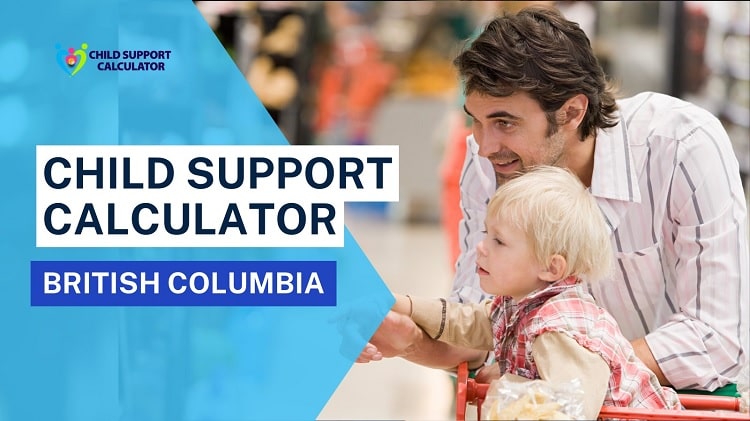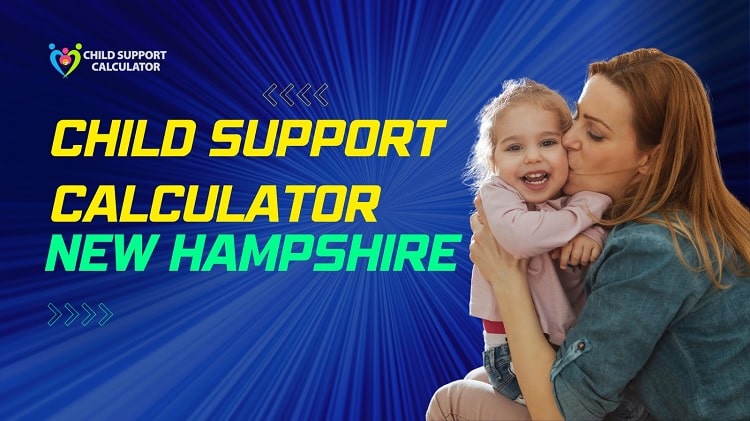VT Child Support Calculator (Vermont)| Guidelines – 2024
In Vermont, either parent has the right to ask for child support. However, a court might compel one or both parents to pay average child support. The parent who spends less than 50% of the time with the kid (known as the “non – custodial parent”) is typically the one who pays. The “custodial parent,” who resides with the child, is also responsible for child support, but the law believes that this parent spends the required amount exclusively on the child.

The child support payment is usually determined by the number of children involved, the parents’ earnings, and the custody agreement between the parents. You can use Vermont’s child support calculator to determine your fair share of support, but a court can change the amount of support if the guidelines yield an unjust number to a parent or the child.
The child support rules in VTt are little more than a charge schedule or formula. Parents are able to pay more or less than the amount specified in the recommendations. In any case, the sum must be approved by a court. Parents must split childcare costs and other obligations, such as those necessary for the child’s education, in addition to the amount established by the rules. A court may also require one or both parents to bear the child’s medical insurance cost.
How Is Child Support Calculated in VT
You’ll need to know each parent’s gross and net earnings to use the child support guidelines. All money from all sources is referred to as “gross income.” Your salary, earnings, bonuses, and commissions from your employer, as well as any pension or severance money, are all included. It also includes funds derived from copyrights, annuities, or a foundation, among other sources.
Even if you’re unemployed, you’re likely to have child support income in the form of social security, workers’ compensation, military pay, unemployment, or disability allowance. Gifts, rewards, and spousal support are all taken into account, and a court may even ascribe income based on the value of the property, such as a vacation house or a car.
A court might also impute income to a deadbeat parent who is intentionally jobless or underemployed unless the parent has a compelling cause for earning less or not at all. For example, if a parent has a handicap, they will not be held legally responsible for additional income. A court will also not impute income to a parent if it is in the kid’s best interests for that parent to stay at home and care for the youngster.
A few benefits, such as humanitarian assistance, food assistance, and any support you are currently supporting for other children, might be omitted from gross income.
After you’ve calculated both parents’ gross income, you’ll need to subtract their available income. Gross income less spousal support, pre-existing child support, the cost of the child’s medical insurance, FICA taxes, and state and federal tax taxes equals available income.
Check Vermont’s child support worksheets for a list of what to include and what you can subtract. Use the “Single or Split Custody Worksheet” if you have sole or shared custody. Use the “Shared Custody Worksheet” if you have shared custody.
Vermont’s Child Support Laws and Custody
Before you can calculate support, you’ll really have to measure how long each parent will spend with the child. There are several ways to split parenting time, but the guidelines calculate support differently depending on whether you have “sole custody” (the child lives with you for more than 75% of the time), “shared custody” (the child lives with each parent part-time), or “split custody” (where the parents divide the children between them – for example, mom has the older child while dad has the younger).
Once you’ve determined both parents’ available earnings and custody, you may calculate child support using Vermont’s child support standards, which will give you an overall amount required. Once you have that figure, you can determine how much each parent will contribute to the total. Kid support is paid until the child reaches the age of 18 or is liberated. Kid support may be extended through the youngster’s 18th birthday in some circumstances if the child has an impairment or special needs.
However, keep in mind that the cost of childcare, hospital attention or other costs will raise your average child support obligation. In addition, if a parent’s income is less than the least amount allowed by the child support guidelines, or if a parent would be left with insufficient funds to sustain himself or herself, the court can exercise its discretion in deciding a reasonable payment.
Challenging a Child Support Award
The overall amount allocated by the rules, or the way that number is split, might be unjust to a parent or a kid at times. Before a child support agreement is in place, any parent can request that the court adjust the amount of support. In that scenario, a court would consider the following reasons while determining whether or not to reduce or increase child support:
- The child’s monetary resources.
- The custodial parent’s economic ability.
- The standard of life if both parents were living in the same residence.
- The physical and emotional well-being of the child.
- The educational requirements of the kid.
- The non-custodial parent’s financial resources and requirements.
- Wage growth
- The costs of either parent’s education.
- Travel expenditures incurred as a result of the entitlement to parent-child contact.
- Any other considerations that the court deems important.
Who Pays Taxes on Child Support in Vermont
The parent who pays child maintenance receives no tax credit or advantage. Furthermore, because the contributions belong to the kid, the parent who gets average child support does not have to disclose it as income. Child support obligations (past due and overdue child support) can also be deducted from the tax return of the paying parent.
The child dependant deduction, also known as the child tax credit, is usually claimed by the person who resides with the child the most—the custodial parent. Parents may split the deduction in some situations, with one parent receiving the advantage in odd years and the other getting the benefit in even years. The child dependant exemption or tax credit will be specified in your court ruling as to how and when you can claim it.
Vermont Child Support Modification
You can ask the court to reconfigure (change) a child support order at any time after it has been issued. If the initial order was granted or amended less than three years ago, you must establish a significant and unforeseen material change, such as the loss of a job, a parent’s serious sickness, an overseas move, or a modification in the parenting plan.
If a support order has been in force for three years or longer, the bar for changing it is lower. The Vermont Office of Child Support website and our page on Child Support Modification in Vermont include further information on altering child support orders.
Collecting and Enforcing Child Support in Vermont
When a child support order is in effect, the parent who is liable for the child’s support (known as the “obligor”) is required to pay average child support on time each month. Bank deposit, cash, check, money transfers, Zelle, and even Venmo are all options for paying average child support.
Parents who fail to pay court-ordered child support may be subject to legal fines and penalties.
How does having shared custody of the child affect child support in Vermont?
In circumstances when the custody arrangement allows for joint or shared custody of a child across both parents, all states provide a mechanism of adjusting the amount of child support payable.
The child support formula to calculate in VT takes joint custody of a child into consideration directly when calculating payment amounts. This implies that in circumstances where custody is shared, the contributing parent’s child support payment will be decreased in proportion to the amount of time they have custody of the child.
How are child support payments taxed in Vermont?
According to IRS standards, child support recipients are not required to pay federal tax on their payments, and child support payers are not permitted to reduce their payments. This is in contrast to the corporate taxation of alimony and child support, which the receiver treats as taxable income and the payor deducts. The tax regime of child support in Vermont may differ from state to state.
How are child care costs treated by child support in Vermont?
Vermont has unique standards that assess child care expenditures independently from the overall costs of raising a child for the purposes of determining child support payments due to the high costs of child care for a cash transaction.
Child care fees are treated as a “required subtraction” for basic child support in Vermont. If the non-custodial parent pays child care costs, the share of the total monthly child care expenditures ascribed to the custodial spouse is taken from the non-custodial parent’s monthly child support contribution. In addition to basic child support, if the custodial parent pays for child care, the non-custodial parent must pay their portion.
Faqs
Does child support cover college education expenses in Vermont?
Whereas the state of Vermont does not have an express mandate that college expenditures be funded by child support, both parties can voluntarily agree to support for college fees, which is then legally valid.

